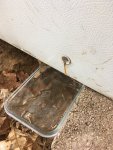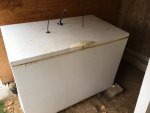Prophet,
The limits to your question is found in the constant of atmospheric pressure. If you will allow me a moment of suspended disbelief on your part, I will try to make a rough analogy between two engines that use oxygen, one of course is the activity of your plants and the other my attempt to use as example an internal combustion engine.
Many people like high performance vehicles, as you seek high performance plant activity.
Putting a larger gas tank on a vehicle, like adding richness to soil, or adding a variety of fuel additives, like vitamins for soil, or even weighting down or lightening the chassis do not effect change in the oxidation of fuel in the pistons of the engine. Pistons require a constant fuel to Oxygen ratio. This is equivalent to oxidation reactions in plants occuring at normal atmosphere of roughly 14psi. The balance of the reaction components have no impetus for increase, because only more oxygen would allow a greater quantity of fuel to be oxidized, whether plant or engine.
The only thing that truly makes a difference is the addition of more oxygen. As you know, oxygen and water are the prime nutrients for plants, more important than even the major nutrients NPK.
Usually NO2 (nitrous oxide) or a air pressure increasing system like a super charger or turbo charger allow for an engine to burn more fuel because they compress oxygen and deliver therefore more potential to burn more fuel per cyclein the tiny space of a piston.
So in the area you have an interest in, the term plant respiration is used. Plants breath in CO2 and breathe out Oxygen, yet if their roots have no oxygen they suffer. So to avoid pollution of the analogy, lets go into the soil and ask your question in light of how to increase respiration in oxygenated soil and therefore uptake of the fuel nutrients you are making an effort to provide.
How many soil components add to the ability of a plant to increase its cellular respiration at root level and thus take up more fuel? Not many, although all contribute to the process. However, one group of soil components has come to light as a significant support of respiration, and to my understanding it does not speed up the RPM or cycle of the plant respiration but rather the quality of, or quantity of, respiration components of a plant cycle.
This group of soil components is still not well understood as far as I know. It is my understanding that there are 12 of them known, yet only 4 are able to be provided to gardeners at this time. I am sure improvements in science could change this even as I type.
To end my analogy, I suggest you examine the humic acid amendments, the only soil additives I know of to help the engines of your plants "breathe" better.




